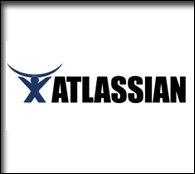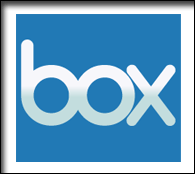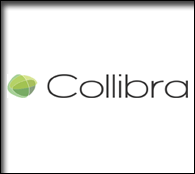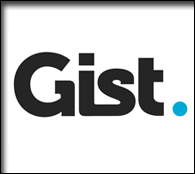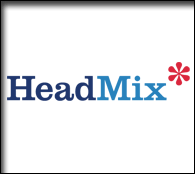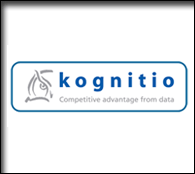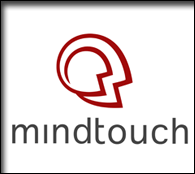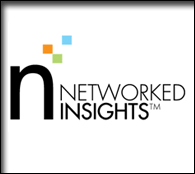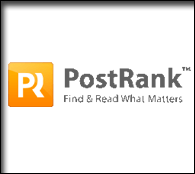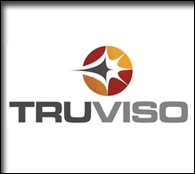Archive for June, 2009
Chewing through agenda possibilities
by Eric Norlin on Jun.29, 2009, under Uncategorized
I find myself purposefully spending more time on the Defrag agenda at an earlier point in time this year. That’s not because I felt that last year’s content was bad (it wasn’t). It’s more that after every Defrag, as the organizer, I always have this sense that I’ve got a lot of room to really expand, dig in, create new excitement, and take things to another level. So, I’m focusing pretty hard on doing that for the content this year.
As a result, I’m spending a lot of time chewing through format issues and how best to situate keynote ideas against breakout topics. Ideally, keynotes re-orient the whole group to some larger new perspective. Breakouts allow people to breakdown separate facets of that perspective. And to that end, I’m thinking through the “afternoon topic explorations” - a LOT.
Let’s take “Messaging Metaphors” - I’m not even sure that’s the correct name (it may actually be “communication metaphors). I do know this: the metaphor underlying email no longer works like it used to. That is to say that the metaphor of write a letter, send a letter, receive a letter made PERFECT sense at one point (and it made a lot of sense when we were trying to teach Grandma in Nebraska about email), but anymore - not so much. Don’t get me wrong, I LIVE in my inbox - it is the nexus of every work thing I do. But I also see that inboxes aren’t very good at managing tasks or fostering collaboration, or even (necessarily) communicating. And then I look around and see things like Twitter (and Socialcast and Gist and and and), and I know that as the metaphor of email is breaking down, we’re all wading through the miasma of new metaphors; struggling to figure out which ones work best for what situations.
So, do I wanna spend an afternoon reviewing case studies of how business use twitter? Not really. But do I wanna spend an afternoon thinking through why the metaphors are collapsing and how things like Twitter are scratching away at new metaphors, new modes of interaction, and ultimately, NEW case study possibilities? Hell yes. And I’m betting the folks that attend Defrag will want to as well. That, then, is what that one topical exploration is about. I don’t know what the “points of view” (POVs) will be yet, but I really like the idea of 4, 10 minute positions followed by 20 minutes of a really well-led group discussion.
Further, I like the idea of a bunch of POVs surrounded by keynotes that feel like the time you get on the chair lift when you’re skiing - you know a chance to rise above it all a bit, reorient your perspectives, enjoy the view, and learn something unexpected before diving back into the work/enjoyment of getting down the mountain.
Alright, I’m rambling - but I think you can see where I’m going with this. More on the keynoters as I confirm them. And much more on the afternoon topics. Send me thoughts via the comments or in email (enorlin AT mac.com).
An Agenda First Draft - kinda
by Eric Norlin on Jun.22, 2009, under conference topics, speakers
We’ve posted the “first draft” of the agenda, although it is actually more like an alpha because all that’s really there is format. Don’t get me wrong, we have stuff to put there, but I’ve just posted format at this point (mostly for feedback). As you take a look, some terms to keep in mind:
1. “Fragments”: basically, shorter keynotes. I’m experimenting with this a LOT this year - the mix of short vs. long time frames. Every time I do rapid-fire short times, people attending LOVE it. The speakers always want more time, but they usually don’t realize how being forced to be concise improves what they say. That said, there are way more “fragments” on this alpha agenda than we’ll actually end up having. Like I said, I’m playing around.
2. “Problem-set”: This is an idea I’ve been toying with since Gluecon. What I want to do is have 4 CEOs of startups get up on stage and describe a problem (technical, business, strategic) that they’ve encountered since starting their company that they have no idea how to solve. In other words, it can’t be the problem their startup is solving, it has to be something they’ve discovered since founding their startups. The idea is to crowd-source this discussion a bit and find a creative way to weave a “solution set” session back into day 2 of the agenda (currently not there).
3. “Open Space”: This is some unconference time within the conference. We experimented with this in year 1 and it really worked. Fortunately, we had Jerry Michalski running it in year 1. Unfortunately, he couldn’t make it in year 2 (and we suffered for it). Doubly fortunately, Jerry’s back this year.
4. “Afternoon Topic Explorations”: What I’m trying to do here is A) present 4 distinct “points of view” (POV) around a broad topic and then have a “discussion catalyst” (moderator) lead a group discussion for 20 minutes or so. For instance, “messaging metaphors” might have a POV around why twitter will replace email, a POV around why email enhancers like Gist and Xobni are the wave of the future, a third POV on how Google’s WAVE will change everything, and a fourth POV on the effect that social media is having on the metaphors of messaging. Four, ten minute POVs, and then we have a group discussion led by someone smart in this area.
Broadly speaking, I’m trying to structure in a physical experience of “information overload” or fragmented ideas followed by “defragging sessions” - or longer discussion times that start tying threads together. I’m not sure exactly how this will turn out, but that’s kinda half the fun of between now and then.
There are some things I can already begin to highlight:
1. Andy Kessler is confirmed for a keynote.
2. Stowe Boyd is confirmed for a keynote to talk about “Deep Structure Of The Real Time Stream: Semiotics And Microsyntax” (sidenote: after I looked up what “semiotics” meant, I decided he needs more time.) ![]()
3. I’m putting together a VC panel on day 2 to address the funding environment — specifically, the broad trend we’re seeing around investment in social media leverage startups and social media analytics services. It looks like Brad Feld, Roger Ehrenberg, Howard Lindzon and Fred Wilson are already on board for that.
4. We’ve got a loose session around “Discovery vs. Search” where Robert Scoble and Buzz Bruggeman will be co-instigators (we’ll look to add Bing, FriendFeed, Google, etc).
All in all, not a bad alpha agenda start — with much work to do. If you’re interested in being involved, email me (enorlin AT mac.com).
Lastly, I’m running a special registration discount for this week and this week only (in honor of another conference taking place up in Boston). Use the code “e2″ and drop our price down to the insanely low $895. But hurry, it expires Friday.
Friday notes
by Eric Norlin on Jun.19, 2009, under general, speakers, sponsors
I’ve got a couple of notes on a Friday morning, as we start the very early planning for Defrag:
1. I’m overjoyed to announce that Andy Kessler has agreed to be our opening keynote. Andy is, of course, a noted author and frequent contributor to the Op-Ed pages of publications like the Wall Street Journal. You will not want to miss the perspective Andy will bring to the Defrag discussion.
2. You might look at the Defrag homepage and wonder “what’s with that widget?” You know, the one that says “Discover who in your social network is a Defrag attendee.” I’m very happy to be working with EventVue as their alpha customer (alpha alpha - so be kind) around their new “Discover” service. The value proposition of Discover is simple — use it to find out who in your network is a defrag attendee, sign up to be notified when people in your network register for the conference (if you’d like), and receive special discount codes when you use the service. The premise, of course, being that one of the main factors in people’s decision making process around attending is knowing who *else* in their network is coming. We’re just now working on rolling Discover out (and I’m working with the EventVue guys around feedback, design changes, etc) - but I’d love to hear what you think.
3. Lastly, if you’re a sponsor of the recent Semantic Technology Conference or the upcoming Enterprise 2.0 conference, you’re eligible for a discount to sponsor Defrag. Defrag’s obviously a bit of a different animal - since we live at the intersections of a bunch of topics (including those two), and I really hope you’ll give us a look. Email me (enorlin AT mac.com) to find out more.
Beginning to eye Defrag
by Eric Norlin on Jun.10, 2009, under conference topics, speakers, sponsors
Believe it or not, we’re beginning to work on Defrag 2009. Please check out what past attendee’s thought of Defrag, and then consider attending this year’s iteration. Here’s what we’ve got cookin’ so far:
1. This year’s advisors include -
Roger Ehrenberg
Paul Kedrosky
Chris Shipley
Jerry Michalski
2. This year’s sponsors already include folks like -
Collibra
Gist
Atlassian
MindTouch
box
Truviso
HeadMix
Networked Insights
Freepository
Gnip
Chatterbox
PostRank
NewsGator
3. Early “discussion catalysts” (I’ve decided to call them that, since that’s more accurate than “speaker”) already include folks like-
Kim Cameron
Fred Wilson
Robert Scoble
Buzz Bruggeman
Deborah Schultz
Stowe Boyd
Louis Gray
4. I’m already working on some different “format things” for this year’s Defrag. For one thing, I want to run a “problem-set” session — where we ask entrepreneurs to present a problem they’ve discovered (in 5-10mins) SINCE starting their company. Secondly, I want to run “theme focused” afternoons — where we gather 5-8 differing angles on topic themes and then have discussions following. Needless to say, we’re looking to A) pick up the pace of presentations and B) move more directly toward discussion.
Sound interesting? I hope so. And, believe me, we’re really JUST getting started. If you’re interested in joining our awesome sponsors, shoot me an email (enorlin AT mac.com).
Cluetrain at 10
by Eric Norlin on Jun.05, 2009, under general
Doc points out that we’re in the midst of the 10 year anniversary of The Cluetrain Manifesto. I can honestly say that Cluetrain changed my life. Here’s how:
When Cluetrain came out, I was a stock-broker living in Denver. I remember sitting at The Park Tavern, reading the book, eating dinner (I devoured the book in one sitting). I’d never read anything like it. In the back of the book were author bios. And one of those bios was for Chris Locke, who, as it turned out, lived in Boulder. Amazingly, it contained his email address. So, I did the only logical thing — emailed him and told him I wanted to buy him a cup of coffee.
Chris was nice enough, and responded to my email by saying that he’d love to, although his schedule was a bit weird. I emailed him several more times trying to set up a meeting - all with no luck. Finally, in a fit of frustration, I sent him an email saying something like - “look, I know you’re a bestselling author and all, but you don’t have to be an asshole — either have coffee with me, or tell me to stop bothering you.” My phone number was in the email’s sig. Two minutes after I sent it, my phone rang. It was an apologetic Chris Locke.
Over the next few months, Chris and I had coffee on a regular basis — talking technology, the internet, Hunter Thompson, music, buddhism — just about everything. Then, one day, Chris told me that he wanted me to work with him on a site - and he thought he could help me make some money doing it (thus began my entrepreneurial life).
The site was personalization.com. The guy paying us was Steve Larsen. The conferences were the personalization summits. The events/meetings/people that came out of working with Chris and Steve include:
1. Met Doc Searls and David Weinberger — still 2 of the smartest people I know.
2. Met Esther Dyson, Clay Shirky, Jerry Michalski, Ann Winblad — and a whole host of Chris and Steve’s “network” (Chris and Steve were part of the original crowd known as “jerry’s kids” that later became PC Forum).
3. Chris called me one day and said, “I just found this new thing that is going to CHANGE THE WORLD.” That thing was Blogger. Back when it was basically run out of Evan Williams’ bedroom. Chris and I ran the personalization.com site off of blogger from there on out (and used to have to email Ev and ask him to reboot the server now and again).
4. Doc intro’d me to Andre Durand, who intro’d me to Phil Becker. Andre started Ping Identity (where I was employee #1), and Andre and Phil asked me to join them on founding and building Digital ID World (DIDW). DIDW was my first real experience running a conference. And it’s still what I do today (obviously).
5. I spent hours in Chris’ kitchen while he reviewed/wrote/ripped apart chapters of Gonzo Marketing.
And countless other things….
I can honestly say that Cluetrain (and interacting with the people around it) changed my life. Not a little. Drastically. And the book was pretty good too! ![]()
To Doc, David, Chris (I’ve never met Rick) — thanks guys! It was always more than just a book, and I think it’s probably inspired an entire generation of tech marketers.
